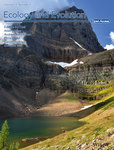Sentis A, Veselý L, Let M, Musil M, Malinovska V, Kouba A. 2022. Short-term thermal acclimation modulates predator functional response. Ecology and Evolution 12(2): e8631. https://doi.org/10.1002/ece3.8631
Abstract
Phenotypic plastic responses to temperature can modulate the kinetic effects of temperature on biological rates and traits and thus play an important role for species adaptation to climate change. However, there is little information on how these plastic responses to temperature can influence trophic interactions. Here, we conducted an experiment using marbled crayfish and their water louse prey to investigate how short-term thermal acclimation at two temperatures (16 and 24°C) modulates the predator functional response. We found that both functional response parameters (search rate and handling time) differed between the two experimental temperatures. However, the sign and magnitudes of these differences strongly depended on acclimation time. Acclimation to 16°C increased handling time and search rate whereas acclimation to 24°C leads to the opposite effects with shorter handling time and lower search rate for acclimated predators. Moreover, the strength of these effects increased with acclimation time so that the differences in search rate and handing time between the two temperatures were reversed between the treatment without acclimation and after 24 h of acclimation. Overall, we found that the magnitude of the acclimation effects can be as strong as the direct kinetic effects of temperature. Our study highlights the importance of taking into account short-term thermal plasticity to improve our understanding of the potential consequences of global warming on species interactions.
Keywords: None provided.






